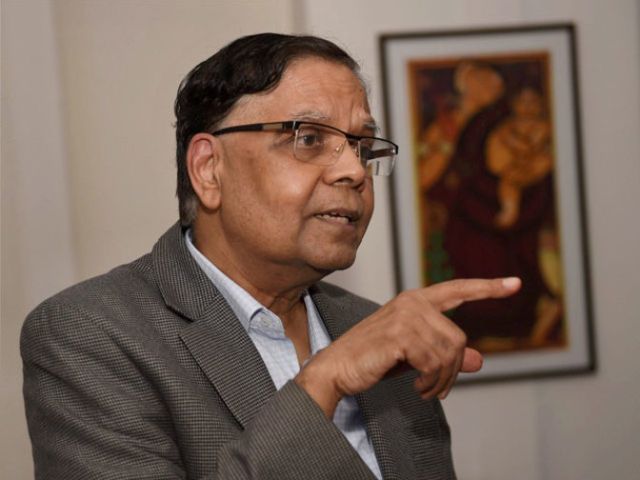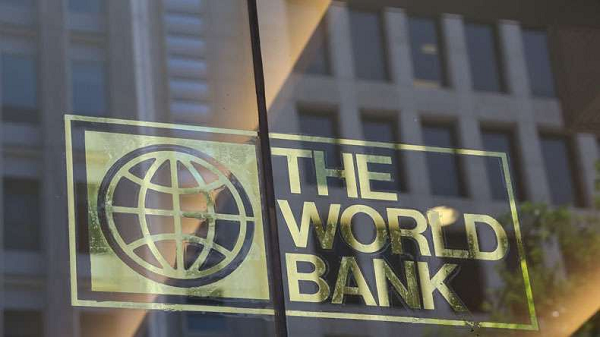
by Editor | May 25, 2021 | World
 Bangkok : There are 250 million people living in poor quality housing with limited access to basic services across East Asia and the Pacific, the World Bank said in a report on Tuesday.
Bangkok : There are 250 million people living in poor quality housing with limited access to basic services across East Asia and the Pacific, the World Bank said in a report on Tuesday.
The report, titled “Expanding Opportunities for the Urban Poor”, observed that the region of East Asia and the Pacific enjoys the highest urban development, but it also has the world’s largest slum population of 250 million with a shortage of public services in countries such as China, Indonesia and the Philippines.
It said conditions in these settlements were dismal, with settlers living in overcrowded colonies without access to tap water, electricity, sewage disposal, public transportation, and affordable housing, Efe news reported.
Slums “mark the sites of deprivation and exclusion (monetary, infrastructural, social, and political) within the urban-built environment” and “signal a trend towards the urbanisation of poverty”, the World Bank said in the report.
It also said that urban growth helped lift about 655 million out of poverty in East Asia and the Pacific in the past 20 years. But it had also led to widening inequality.
The organization said improvement in urban infrastructure in countries like Japan, South Korea and Singapore had not only helped its poorest residents but also contributed to the growth of their economies.
Currently, 75 million people in the region live on less than $3.10 a day and by 2018, half of the region’s population — more than 1.2 billion — will live in urban areas.
In Indonesia, 27 per cent of the urban population had no access to effective sanitation facilities while that number in the Philippines was 21 per cent.
According to the World Bank, the urban poor also lack employment opportunities and adequate access to public transport while being more exposed to natural disaster risk.
“Cities across East Asia have propelled the region’s tremendous growth. Our collective challenge is to expand opportunities to all in the cities — from new migrants living in the peripheries to factory workers struggling to pay rent — so that they can benefit more from urbanisation and help fuel even stronger growth,” said Victoria Kwakwa, World Bank Vice President for East Asia and the Pacific.
The organisation’s recommendations in the report included connecting the urban poor with job market, investing in urban planning, ensuring housing, helping the neglected sub-groups among the urban poor and improving information systems.
—IANS

by Editor | May 25, 2021 | Muslim World
 Ramallah, Palestine : The World Bank, on Tuesday, called on Israel to improve its procedures, at the crossings for Palestinian goods, remove restrictions on access to Area C of the West Bank, and lift the blockade on the Gaza Strip, in order to improve the Palestinian economy.
Ramallah, Palestine : The World Bank, on Tuesday, called on Israel to improve its procedures, at the crossings for Palestinian goods, remove restrictions on access to Area C of the West Bank, and lift the blockade on the Gaza Strip, in order to improve the Palestinian economy.
It pointed out that, economic and social gains could be enormous by 2025. The annual growth rate of the Palestinian economy could reach six percent in the West Bank and eight percent in the Gaza Strip, which would create 50,000 and 60,000 new jobs, respectively.
To achieve this growth, the World Bank urged Israel, the Palestinian Authority and the international community, to create a better enabling environment to run and support business in the Palestinian territories.
In this regard, the report urged to streamline Israeli procedures at border crossings. The average trade costs per transaction for a Palestinian firm are nearly three times as high as for an Israeli firm, and nearly four times for the average duration of the import process.
The report also called for removing the Israeli restrictions on access to Area C, which is under the Israeli security and administrative control. This would enable Palestinian companies to benefit from the only contiguous territory in the West Bank and its comparative advantages in agriculture, mining, and tourism.
Lifting the Israeli blockade imposed on the Gaza Strip since mid-2007, was also one of the report’s proposal, which pointed out that this will open a way for the critical trade movement to rebuild its infrastructure and economy, and to improve the poor living conditions of Gaza’s residents.
According to the report, easing Israeli restrictions could increase the size of the Palestinian economy by 36 percent in the West Bank and 40 percent in the Gaza Strip by 2025.
—NNN-XINHUA

by Editor | May 25, 2021 | Corporate, Corporate Buzz, Corporate finance, Entrepreneurship, Success Stories
 Bhubaneswar : World Bank’s global head for Rural Livelihoods and Agricultural Jobs Parmesh Saha on Thursday suggested that Odisha government transform the state’s bumper agricultural production base into entrepreneurship by setting up more incubation centres and food processing clusters.
Bhubaneswar : World Bank’s global head for Rural Livelihoods and Agricultural Jobs Parmesh Saha on Thursday suggested that Odisha government transform the state’s bumper agricultural production base into entrepreneurship by setting up more incubation centres and food processing clusters.
“Because of a series of promotional interventions during last years, the state has been able to build all pre-conditions required for growth and job creation in the agricultural sector. Now the state has become a land of bumper production,” said Saha, who was delivering an address at the Odisha Knowledge Hub Lecturer series here.
Saha also suggested for collaboration between the state and World Bank for the promotion of grassroots incubation for the food industry.
He maintained that globally around 21 per cent of jobs are created by the food processing and agro-processing sectors.
He cited the examples of South Asian countries, Europe, France, Thailand, and Holland, where more jobs were created by transforming the bumper production to agricultural entrepreneurship in agro-processing and food production.
“Growth of small and medium enterprises in agricultural sectors requires prior growth of multiple micro-entrepreneurs. These micro-entrepreneurs along with the small and medium enterprises can generate a large number of job opportunities,” Saha said.
He emphasized that no country could create more jobs without promoting and transforming its agricultural base. “Now that Odisha set a high production base, it could take off in creation of more jobs.”
As per the suggestions made by the Secretaries and District Collectors, who participated in the talk, it was decided that the World Bank team would work with Odisha government in the transformation of producer groups to entrepreneurs.
Development Commissioner R. Balakrishnan said that the talk focused on how the non-cereal products of Odisha could get a world market and how production of mango, cashew vegetables and fruits could be transformed to entrepreneurship for creation of more jobs in rural society.
“The state administration would have further engagement with World Bank groups for the creation of more incubation facilities in rural Odisha,” he said.
—IANS

by Editor | May 25, 2021 | Business, Corporate, Corporate finance, Corporate Governance, Emerging Businesses, Large Enterprise

Arvind Panagariya
New Delhi : Enterprises in India take considerably less time in obtaining approvals than reported by the World Bank data, the NITI Aayog said on Tuesday.
According to the NITI Aayog’s “Ease of Doing Business” survey, which covered over 3,000 enterprises, the average time taken to set up a business in India was 118 days. For construction permits, it took even lesser time with an average of 112 days, the survey report said.
“In some states such as Madhya Pradesh and Bihar, getting a construction permit takes even fewer days,” the Aayog said in a statement.
However, according to the World Bank’s 2017 Doing Business report, the time taken for getting construction permits was 190 days, it said, adding: “Thus, it appears that the actual experience of enterprises is better than the survey results of the World Bank.”
“Similarly, on average, it took enterprises about half the time to resolve legal disputes as was reported in the World Bank Survey,” the NITI Aayog statement said.
While the World Bank Survey focuses on industry leaders from Delhi and Mumbai, the survey by the NITI Aayog covers firms, start-ups and experts from almost all states and union territories in India.
However, there is a wide variation across states with Madhya Pradesh and Bihar taking 41 and 43 days respectively to get construction permits, while Assam took 270 days.
“The survey indicates that the government’s efforts to improve business environment are showing results on the ground,” the NITI Aayog said.
It added that the experiences of start-ups started since 2014 suggested a significant improvement in doing business.
“Newer and younger firms take less time in obtaining approvals, highlighting a favourable business environment. Young firms report that most regulatory processes do not constitute a major obstacle to their doing business,” it said.
It added that enterprises in high-growth states are significantly less likely to report major or very severe obstacles in land and construction related approvals, environmental approvals and water and sanitation availability as compared to enterprises located in low-growth states.
“Enterprises in high-growth states also report taking less time on average for nearly all aspects of doing business,” it said.
The NITI Aayog survey, conducted between April 2015 and April 2016, only takes inputs from firms in the formal manufacturing sector. It does not cover unorganized manufacturing and the services sectors that constitute the vast majority in India.
While the World Bank Survey covers 10 parameters handled by the states and the central government, this survey primarily deals with issues handled by the state governments.
—IANS

by Editor | May 25, 2021 | News, World
 New Delhi:(IANS) India’s rank remained unchanged vis-a-vis last year’s original ranking of 130 among the 190 economies assessed on various parameters in the World Bank’s Doing Business 2017 report released on Tuesday.
New Delhi:(IANS) India’s rank remained unchanged vis-a-vis last year’s original ranking of 130 among the 190 economies assessed on various parameters in the World Bank’s Doing Business 2017 report released on Tuesday.
With last year’s ranking, however, being revised to 131, India has, effectively, improved its place by one spot for 2017.
India, thus, continues to rank 130th, recording little or no improvement in dealing with construction permits, getting credit, among other parameters.
Reacting to the latest report, the Indian government expressed disappointment, saying the World Bank had not taken into consideration 12 key reforms undertaken by India.
“We will continue engagement with the World Bank and address their concerns to include these reforms in the next year’s Doing Business report,” Secretary Department of Industrial Policy and Promotion (DIPP) Ramesh Abhishek told reporters here.
He said a dozen important reforms like enactment of bankruptcy code, Goods and Services Tax (GST) and introduction of single window system for building plan approvals, among others online were not “recognised by the World Bank this year”.
Noting that the government has implemented a host of reforms over the past two years to make it easier for businesses to start, operate and exit, DIPP said in a statement here that “it is therefore disappointing that these achievements are not covered by the report due to methodological issues”.

 Bangkok : There are 250 million people living in poor quality housing with limited access to basic services across East Asia and the Pacific, the World Bank said in a report on Tuesday.
Bangkok : There are 250 million people living in poor quality housing with limited access to basic services across East Asia and the Pacific, the World Bank said in a report on Tuesday.



